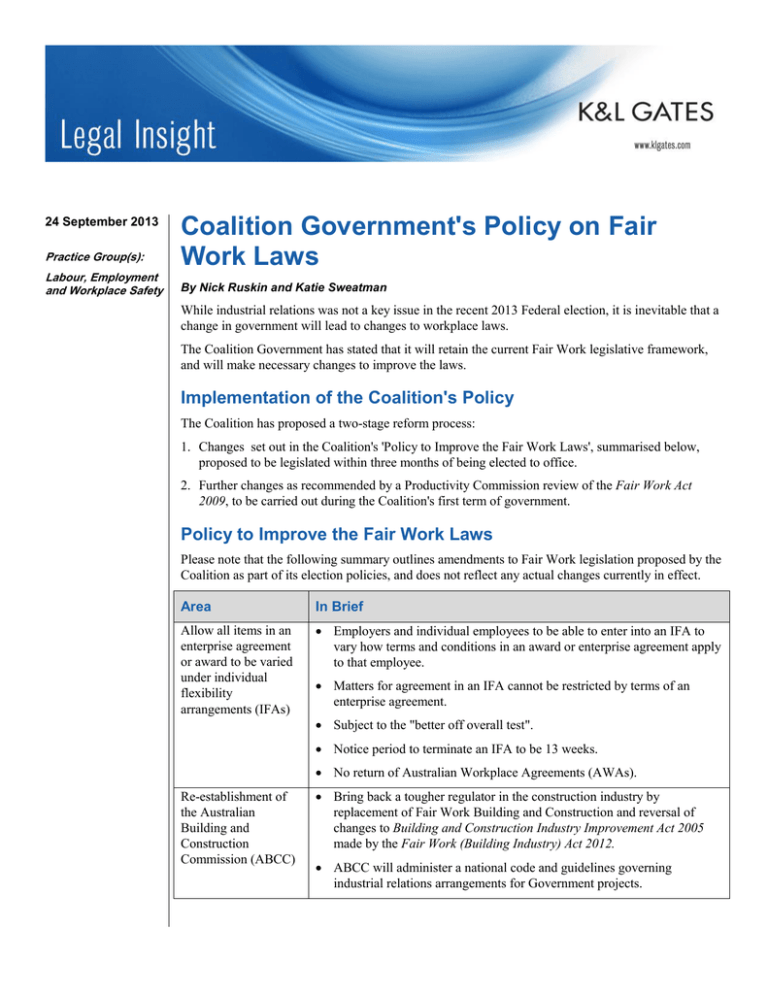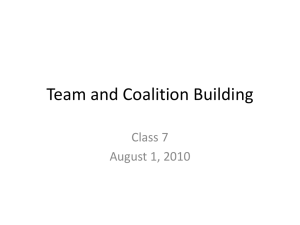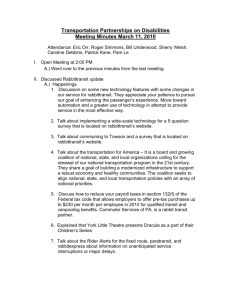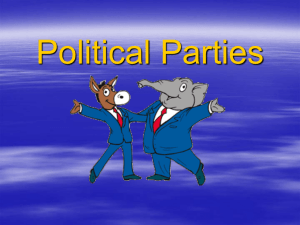
24 September 2013
Practice Group(s):
Labour, Employment
and Workplace Safety
Coalition Government's Policy on Fair
Work Laws
By Nick Ruskin and Katie Sweatman
While industrial relations was not a key issue in the recent 2013 Federal election, it is inevitable that a
change in government will lead to changes to workplace laws.
The Coalition Government has stated that it will retain the current Fair Work legislative framework,
and will make necessary changes to improve the laws.
Implementation of the Coalition's Policy
The Coalition has proposed a two-stage reform process:
1. Changes set out in the Coalition's 'Policy to Improve the Fair Work Laws', summarised below,
proposed to be legislated within three months of being elected to office.
2. Further changes as recommended by a Productivity Commission review of the Fair Work Act
2009, to be carried out during the Coalition's first term of government.
Policy to Improve the Fair Work Laws
Please note that the following summary outlines amendments to Fair Work legislation proposed by the
Coalition as part of its election policies, and does not reflect any actual changes currently in effect.
Area
In Brief
Allow all items in an
enterprise agreement
or award to be varied
under individual
flexibility
arrangements (IFAs)
Employers and individual employees to be able to enter into an IFA to
vary how terms and conditions in an award or enterprise agreement apply
to that employee.
Matters for agreement in an IFA cannot be restricted by terms of an
enterprise agreement.
Subject to the "better off overall test".
Notice period to terminate an IFA to be 13 weeks.
No return of Australian Workplace Agreements (AWAs).
Re-establishment of
the Australian
Building and
Construction
Commission (ABCC)
Bring back a tougher regulator in the construction industry by
replacement of Fair Work Building and Construction and reversal of
changes to Building and Construction Industry Improvement Act 2005
made by the Fair Work (Building Industry) Act 2012.
ABCC will administer a national code and guidelines governing
industrial relations arrangements for Government projects.
Coalition Government's Policy on Fair Work Laws
Area
In Brief
Paid parental leave
Mothers that give birth after 1 July 2015 will be provided with 26 weeks
of paid parental leave, at full replacement wage (up to AUD150,000) or
the national minimum wage, whichever is greater, plus superannuation.
If the mother's partner is the baby's primary carer, they will receive the
payment at the mother's salary. If the partner's annual salary is less than
the mother's salary, they will receive the paid parental leave payment
calculated at their salary or the national minimum wage, whichever is
greater.
Paid directly to the employee by the Government (ie not administered by
employers).
Funded by way of a 1.5% levy on corporations with taxable incomes over
AUD5 million.
Contraction of right of
entry laws
Limit union's entry into a workplace so that the union must have
members, be covered by an award or enterprise agreement, or
demonstrate a prior lawful representative role.
Reversal of recent amendments to right of entry provisions that enables
unions to hold interviews and discussions with employees in a lunchroom
if a permit holder and occupier cannot otherwise agree on the location.
Filtering of bullying
complaints
Amendments to bullying introduced by Labor Government substantively
retained.
Prior to making complaint to Fair Work Commission (FWC), a worker
must have first sought help/assistance/advice from an independent
regulatory agency (likely WorkSafe or interstate equivalent).
Laws to also cover the conduct of union officials towards workers and
employer.
Greenfields
agreements
Only need to negotiate with a union that will cover a majority of the
workers to be employed on the greenfield site.
If negotiations for a greenfield agreement are not completed within three
months of commencement, the FWC will have powers to make and
approve the agreement, so long as the proposed agreement provides fair
working conditions that are consistent with prevailing industry standards.
Protected industrial
action as a last resort
An application for a protected action ballot may only be granted by the
FWC where, as a pre-condition, the employer has agreed to bargain or a
majority of employees has voted in favour of bargaining.
Industrial action will only be protected where (subject to meeting other
pre-requisite requirements) the FWC is satisfied that there has been
genuine and meaningful talks between workers and the business, and that
the claims made by both parties are sensible and realistic.
2
Coalition Government's Policy on Fair Work Laws
Area
In Brief
Registered
organisations and
officials subject to
same reporting rules
and penalties as
companies and
directors
Imposition of criminal penalties, including fines, for failure to comply
with reporting rules and other obligations of registered organisations.
Separate appeals
jurisdiction
Active consideration to be given to creating an independent appeal
jurisdiction of the FWC.
Fair Work Review
Panel report
recommendations
Further recommendations arising out of the Fair Work Review Panel
report not already reflected in amendments to the Fair Work Act 2009 to
be implemented, including:
Reform of financial disclosure and reporting guidelines to align with
Australian Securities Exchange (ASX) corporate governance rules.
Establishment of the Registered Organisations Commission to ensure
new rules and obligations strictly adhered to.
clarification around interaction between workers' compensation and
annual leave
clarification around payment of annual leave loading on termination
expediting development of national long service leave standard
"better off overall test" to account for non-monetary benefits
ability for the FWC to strike out unfair dismissal applications for
non-attendance.
Authors:
Nick Ruskin
nick.ruskin@klgates.com
+61.3.9640.4431
Katie Sweatman
katie.sweatman@klgates.com
+61.3.9640.4297
3
Coalition Government's Policy on Fair Work Laws
Anchorage Austin Beijing Berlin Boston Brisbane Brussels Charleston Charlotte Chicago Dallas Doha Dubai Fort Worth Frankfurt
Harrisburg Hong Kong Houston London Los Angeles Melbourne Miami Milan Moscow Newark New York Orange County Palo Alto Paris
Perth Pittsburgh Portland Raleigh Research Triangle Park San Diego San Francisco São Paulo Seattle Seoul Shanghai Singapore Spokane
Sydney Taipei Tokyo Warsaw Washington, D.C. Wilmington
K&L Gates practices out of 48 fully integrated offices located in the United States, Asia, Australia, Europe, the
Middle East and South America and represents leading global corporations, growth and middle-market companies,
capital markets participants and entrepreneurs in every major industry group as well as public sector entities,
educational institutions, philanthropic organizations and individuals. For more information about K&L Gates or its
locations, practices and registrations, visit www.klgates.com.
This publication is for informational purposes and does not contain or convey legal advice. The information herein should not be used or relied upon in
regard to any particular facts or circumstances without first consulting a lawyer.
©2013 K&L Gates LLP. All Rights Reserved.
4




